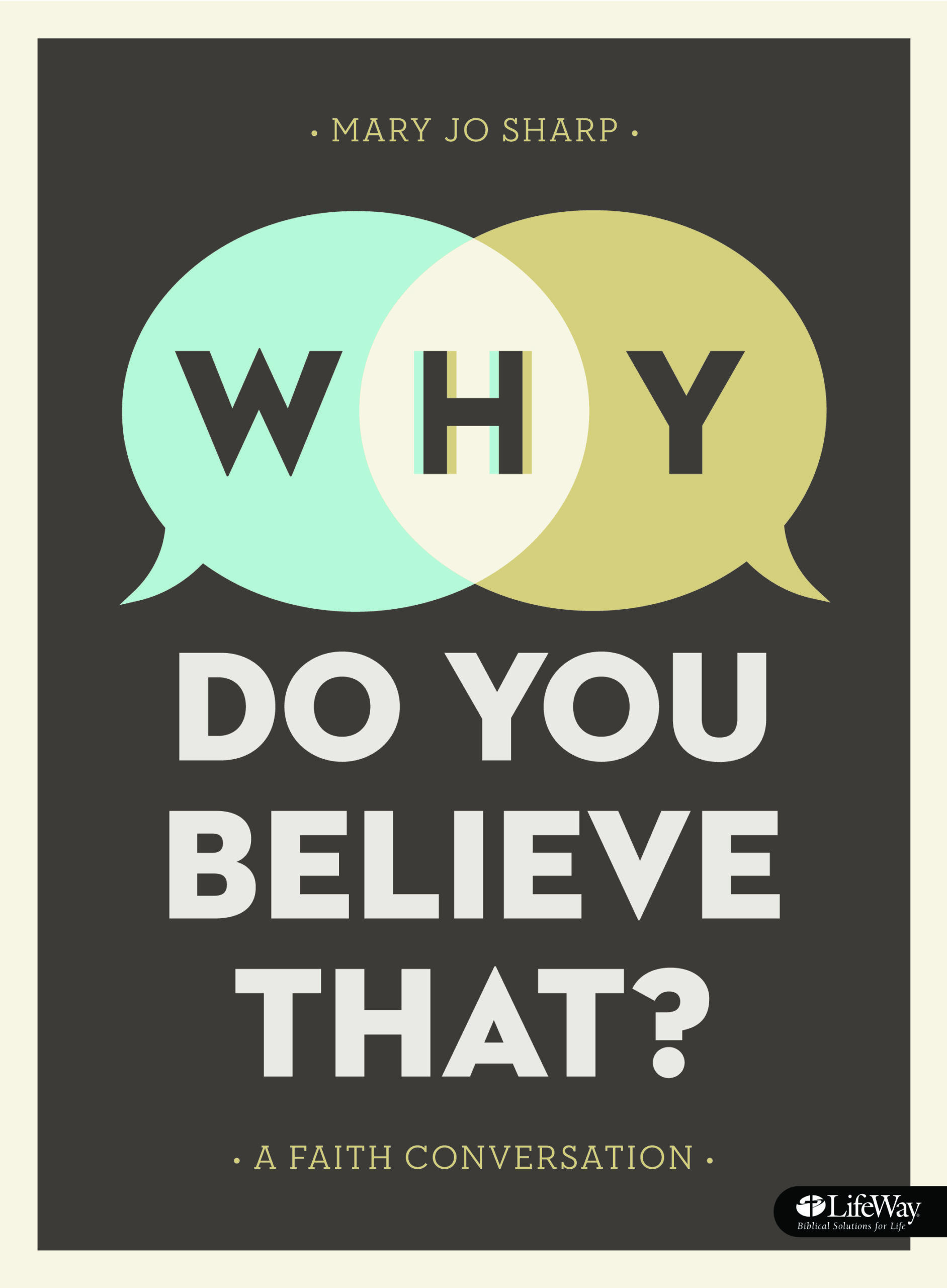 Today, we have a guest post from Sarah Pierce, a chemistry professor from a liberal arts college in Nashville, Tennessee. Her women’s small group decided to learn about apologetics this past fall and picked up Mary Jo Sharp’s, Why Do You Believe That? She shared a story with us about a student hanging out in her office, asking questions about God. Sarah says, “My university is not religiously affiliated, which means it attracts many faculty members who want to teach at a small school, but are not Christians. Many times students come to my office saying “XYZ Professor said this about Christianity. What do you think?”. I never felt like I was confident enough in my answers or knew the “right” thing to say. Your study has already helped with some of these issues.”
Today, we have a guest post from Sarah Pierce, a chemistry professor from a liberal arts college in Nashville, Tennessee. Her women’s small group decided to learn about apologetics this past fall and picked up Mary Jo Sharp’s, Why Do You Believe That? She shared a story with us about a student hanging out in her office, asking questions about God. Sarah says, “My university is not religiously affiliated, which means it attracts many faculty members who want to teach at a small school, but are not Christians. Many times students come to my office saying “XYZ Professor said this about Christianity. What do you think?”. I never felt like I was confident enough in my answers or knew the “right” thing to say. Your study has already helped with some of these issues.”
And here’s more from Sarah about the importance of knowing what you believe:

One often hears about the atheistic, “anti-God” culture that has grown to dominate college campuses. From the discouragement of the discussion of many Christian beliefs because they are perceived as bigoted, to professors actively trying to lead their students away from their Christian beliefs, the college campus appears to be turning against the ideas of a Christian worldview. This is all the more reason for Christian professors such as myself to strengthen our own understanding of what we believe.
Because of the super-inquisitive nature of college students, discussions on faith, controversy, and doubt occur often. And because of the small nature of the school where I teach, students spend two, maybe three years in my classes, offering up a great opportunity to develop solid relationships. These relationships sometimes lead to questions such as “Why do you believe in Christianity?” and “Why do you believe that Jesus is the Savior?” At first I was shocked that students wanted to discuss Christian beliefs and with how direct they were (people I know sure don’t ask questions like that). But more importantly, I was embarrassed that I didn’t have a more concrete foundation to use when answering their questions.
But thankfully, last Fall I had the pleasure of joining a new women’s small group in my neighborhood. We all wanted to be able to talk about our faith with confidence and to be able to answer the hard questions. With that in mind, we chose “Why Do You Believe That?” by Mary Jo Sharp. Sharp’s study is a seven week apologetics study that requires about 15 minutes of personal study, 5 days a week. The study not only discusses the historical and philosophical aspects of why we believe in the Christian faith but it also covers how to listen to people who believe differently and how to engage in a conversation with those people. One of the most beneficial points that Sharp makes in the study is to practice listening to other people and practice answering questions. She also discusses how to explain our faith, rather than creating confrontations. Her point is if we don’t practice these conversations, how will we be ready when the opportunity arises?
This very scenario played out one day in my office. A student confided to me a feeling of guilt for trying to learn more about Christianity, because “everyone back home tells me I should have faith like a child, but I want to learn more.” Just that week, we had discussed in the group that Jesus is the greatest teacher in the history of the world. I was able to tell the student, as followers of Christ, it makes total sense that we should strive to learn more about Him. This response led to a great conversation covering a wide range of issues that often trouble young adults, and the opportunity to offer counsel to a struggling follower of Christ. Sharp’s study provides the tools and the knowledge to meet this challenge head on and would be an excellent study for anyone dealing with these issues.

